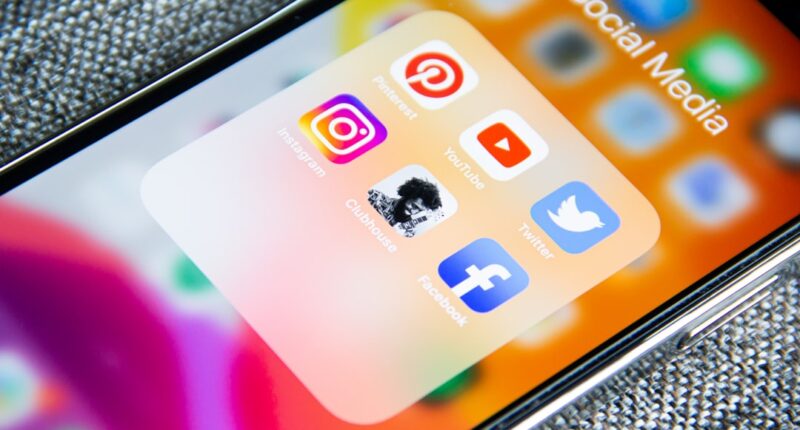In the contemporary digital landscape, music marketing has become increasingly vital for artists and musicians. The advent of streaming platforms and social media has fundamentally altered the music industry, elevating marketing to a critical role in the success of music releases. Effective marketing strategies not only expand an artist’s reach but also foster deeper connections with their audience.
In a saturated and competitive market, strategic marketing can be the differentiating factor that enables an artist to gain prominence and make a significant impact. The digital era necessitates a robust online presence and active engagement with fans across various digital platforms for successful music marketing. With the majority of music consumption occurring online, artists must implement comprehensive marketing strategies to distinguish themselves and reach their target audience.
Numerous opportunities exist for artists to connect with fans and cultivate a dedicated following, including social media promotion, email marketing, and collaborations with influencers. Essentially, music marketing in the digital age focuses on establishing meaningful connections with fans while leveraging digital tools to amplify an artist’s message and music.
Key Takeaways
- Music marketing is crucial in the digital age for reaching and engaging with a wider audience.
- Social media and digital platforms are powerful tools for promoting music and connecting with fans.
- Influencers and collaborations play a significant role in music PR, helping to expand reach and credibility.
- Data and analytics are essential for creating targeted music promo campaigns that resonate with specific audiences.
- Building a strong brand and storytelling are key elements in music marketing for creating a lasting impact on fans.
Leveraging Social Media and Digital Platforms for Music Promotion
Endless Possibilities for Music Promotion
From sharing behind-the-scenes content to running targeted ad campaigns, social media provides endless possibilities for artists to promote their music and grow their fan base. In addition to social media, digital platforms such as Spotify, Apple Music, and YouTube have also become key players in music promotion. These platforms offer artists the opportunity to showcase their music to millions of listeners worldwide and gain valuable insights into their audience’s listening habits.
Reaching New Fans and Growing a Career
By leveraging these digital platforms, artists can reach new fans, increase their streams, and ultimately grow their career. With the right marketing strategy, artists can use social media and digital platforms to create a buzz around their music and establish a strong online presence.
Creating a Strong Online Presence
With the right approach, artists can harness the power of social media and digital platforms to take their music career to the next level. By building a strong online presence, artists can increase their visibility, engage with their audience, and ultimately achieve success in the music industry.
The Role of Influencers and Collaborations in Music PR

Influencers and collaborations play a significant role in music PR, especially in the digital age. Partnering with influencers and other artists can help musicians expand their reach and connect with new audiences. Influencers have the power to sway consumer behavior and can be instrumental in promoting music to their followers.
By working with influencers who align with their brand, artists can tap into new fan bases and increase their visibility. Similarly, collaborations with other musicians or brands can help artists cross-promote their music and create unique experiences for their fans. In the digital age, influencer marketing has become a powerful tool for music promotion, allowing artists to reach highly targeted audiences through trusted voices.
Whether it’s through sponsored content or organic partnerships, influencers can help artists amplify their message and connect with fans in a more authentic way. Collaborations with other artists also offer a valuable opportunity for musicians to tap into each other’s fan bases and create compelling content that resonates with a wider audience. By leveraging influencers and collaborations, artists can enhance their music PR efforts and create meaningful connections with fans.
Utilizing Data and Analytics for Targeted Music Promo Campaigns
| Metrics | Value |
|---|---|
| Number of Targeted Campaigns | 15 |
| Conversion Rate | 12% |
| Engagement Rate | 25% |
| ROI (Return on Investment) | 4.5x |
Data and analytics have become essential tools for targeted music promo campaigns in the digital age. With the wealth of information available through streaming platforms, social media, and other digital channels, artists can gain valuable insights into their audience’s behavior and preferences. By analyzing data such as streaming numbers, listener demographics, and engagement metrics, artists can tailor their promo campaigns to reach the right audience at the right time.
This data-driven approach allows artists to make informed decisions about their marketing strategies and optimize their efforts for maximum impact. In addition to streaming data, social media analytics also play a crucial role in targeted music promo campaigns. Platforms like Facebook and Instagram offer detailed insights into audience demographics, engagement rates, and ad performance, allowing artists to refine their targeting and messaging for better results.
By harnessing the power of data and analytics, artists can identify trends, understand their audience’s preferences, and measure the success of their promo campaigns. This data-driven approach not only helps artists make smarter marketing decisions but also allows them to track their progress and make adjustments as needed.
Building a Strong Brand and Storytelling in Music Marketing
In the digital age, building a strong brand and storytelling are essential components of effective music marketing. A compelling brand identity helps artists differentiate themselves in a crowded market and create a lasting impression on their audience. From visual aesthetics to brand messaging, every aspect of an artist’s brand plays a role in shaping how they are perceived by fans.
By developing a cohesive brand identity that resonates with their audience, artists can build trust and loyalty among their fan base. Storytelling is another powerful tool for music marketing in the digital age. By sharing authentic stories about their journey, inspirations, and creative process, artists can connect with fans on a deeper level and create an emotional connection.
Through storytelling, artists can humanize their brand and make their music more relatable to their audience. Whether it’s through social media posts, behind-the-scenes content, or music videos, storytelling allows artists to engage with fans in a meaningful way and build a narrative around their music.
Embracing Innovative Technologies for Music Promotion

Immersive Experiences
From virtual reality experiences to interactive live streams, artists can utilize cutting-edge technologies to create immersive experiences for their audience. Virtual concerts, augmented reality filters, and interactive fan experiences are just a few examples of the innovative ways artists can engage with fans and stand out in a crowded digital landscape.
Data-Driven Insights
In addition to experiential technologies, AI and machine learning have become valuable tools for music promotion. These technologies can help artists analyze data, personalize content, and automate marketing processes for more efficient campaigns.
Elevating Music Promotion
By embracing innovative technologies, artists can stay ahead of the curve and deliver unique experiences that captivate their audience. Whether it’s through interactive content or AI-powered recommendations, technology offers endless possibilities for artists to elevate their music promotion efforts.
The Future of Music Marketing: Trends and Predictions
Looking ahead, the future of music marketing is likely to be shaped by emerging trends such as live streaming, virtual events, and personalized experiences. As technology continues to evolve, artists will have more opportunities to engage with fans in innovative ways and create memorable experiences that extend beyond traditional music releases. Live streaming platforms are expected to play a significant role in music marketing, offering artists a direct way to connect with fans in real-time and showcase their creativity.
Personalization is also expected to be a key trend in music marketing, as artists look for ways to tailor their content to individual fan preferences. From personalized playlists to targeted messaging, personalization allows artists to create more meaningful connections with their audience and deliver content that resonates on a deeper level. As the music industry continues to evolve in the digital age, it’s clear that the future of music marketing will be driven by technology, creativity, and a deep understanding of audience behavior.
In conclusion, music marketing in the digital age is essential for artists looking to make an impact in a crowded market. By leveraging social media, influencers, data analytics, storytelling, innovative technologies, and emerging trends, artists can create compelling promotional campaigns that resonate with their audience and elevate their brand. As technology continues to evolve, the future of music marketing holds endless possibilities for artists to connect with fans in new and exciting ways.
By staying ahead of the curve and embracing innovation, artists can position themselves for success in the ever-changing landscape of the music industry.
FAQs
What are the current trends in marketing music today?
Some current trends in marketing music today include utilizing social media platforms, creating engaging visual content, and leveraging influencer partnerships.
How important is social media in marketing music today?
Social media is extremely important in marketing music today, as it provides a direct way to connect with fans, share new music, and build a strong online presence.
What role does visual content play in marketing music today?
Visual content, such as music videos, lyric videos, and album artwork, plays a crucial role in marketing music today as it helps to create a strong visual identity and engage with fans on platforms like YouTube and Instagram.
How can artists leverage influencer partnerships in marketing their music?
Artists can leverage influencer partnerships by collaborating with popular social media influencers and content creators to promote their music to a wider audience and gain exposure to new fans.
What are some effective strategies for independent artists to market their music today?
Some effective strategies for independent artists to market their music today include building a strong online presence, engaging with fans on social media, and utilizing digital distribution platforms to reach a wider audience.





